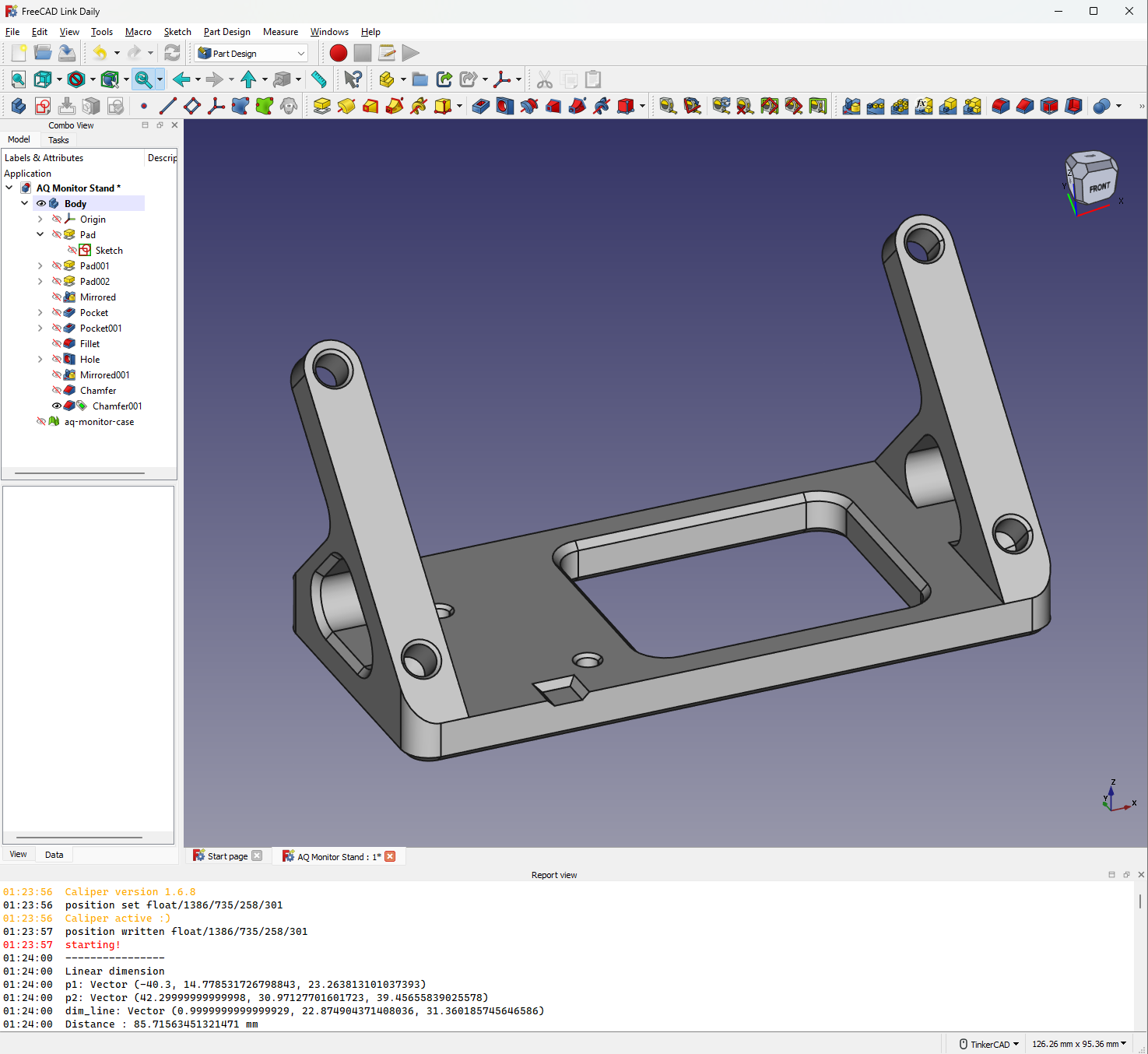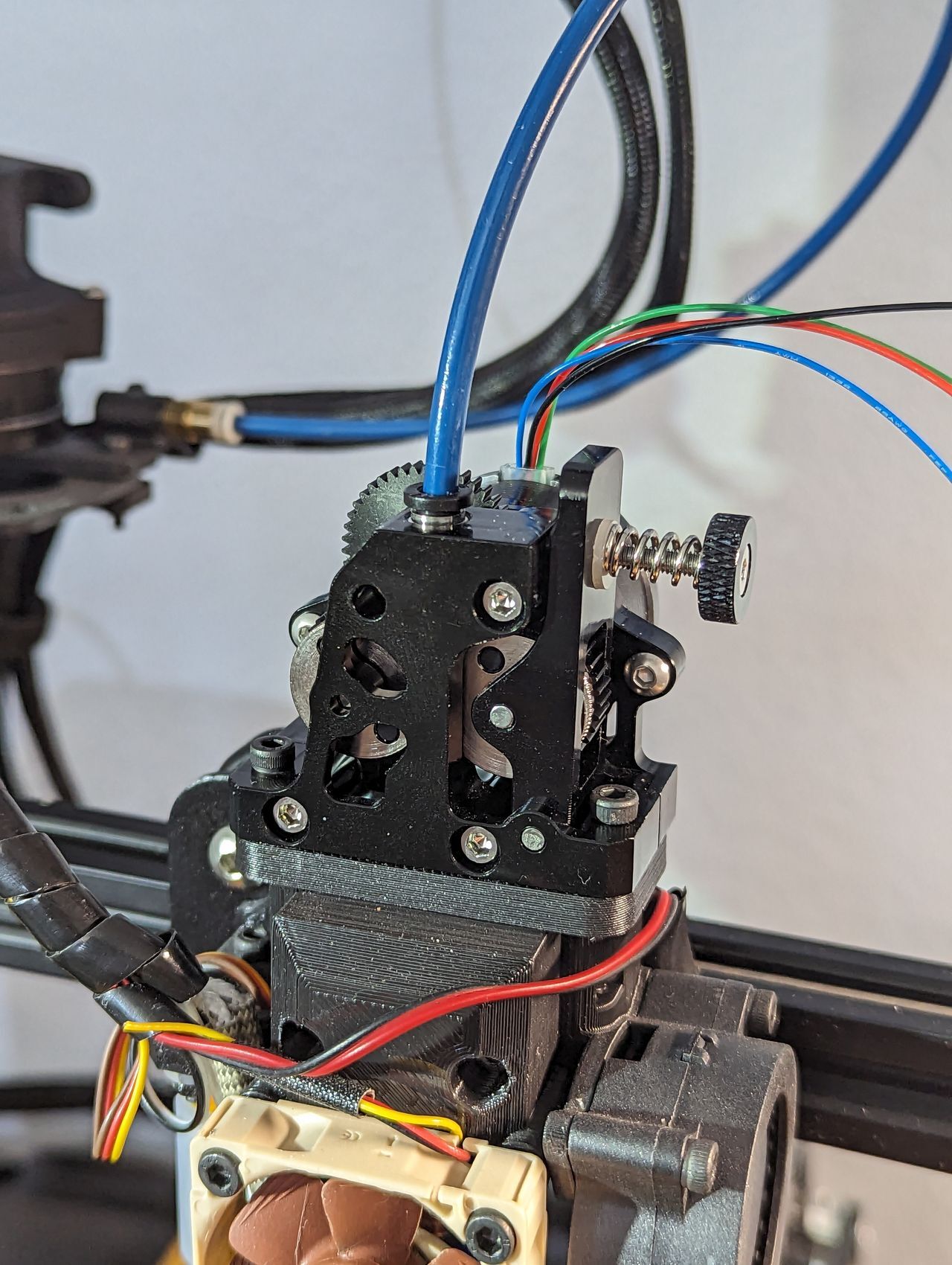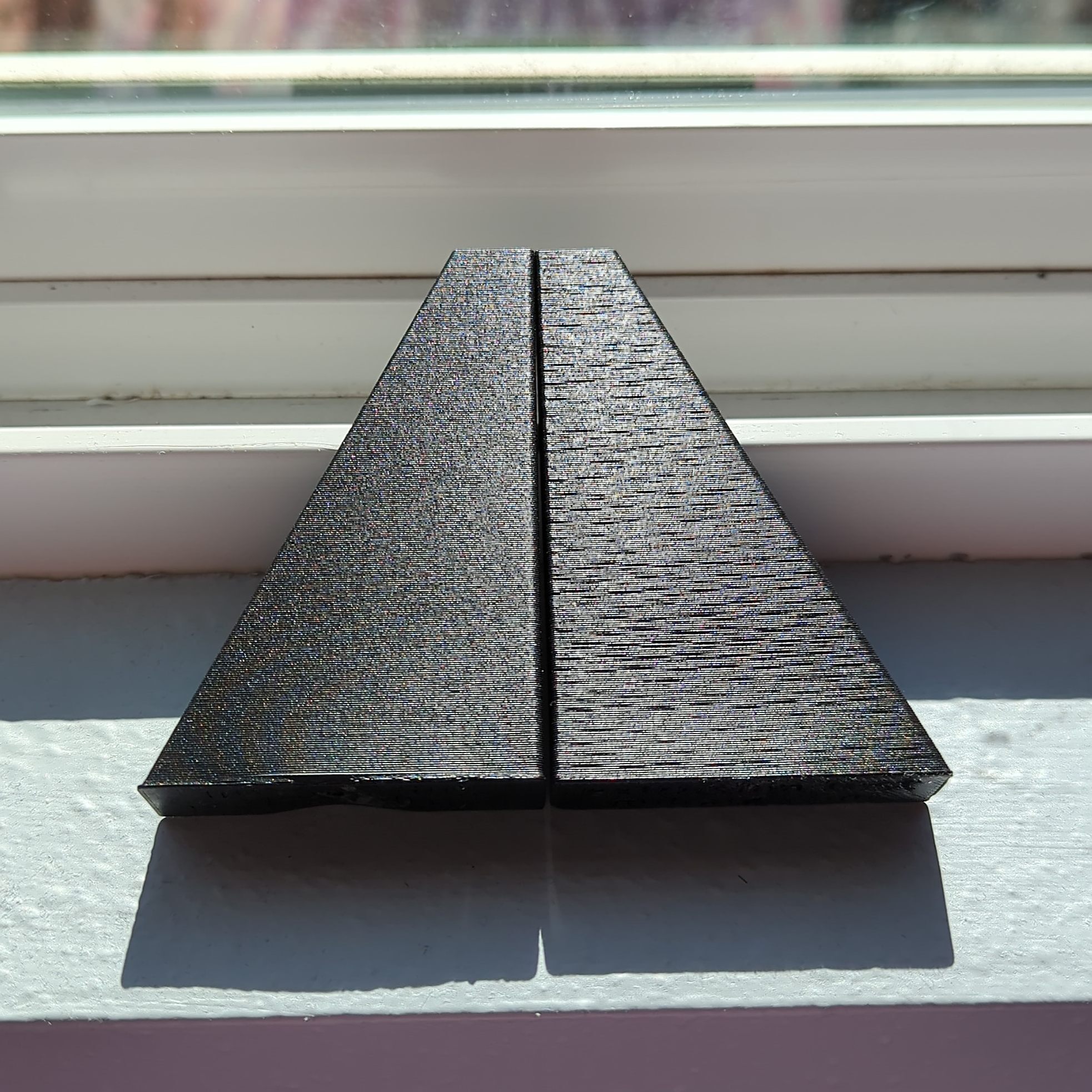Yes - using POE for power and data crossed my mind! But ultimately I ended up only towing fishing line which I then used to pull the cable, which was probably easier than directly towing shielded cat 6!
kizzard
I unimaginatively called it Duct Rover 9000 but I like that, or Mclane :D
that's great information - thanks!
How long depends on your humidity. If you live somewhere with high humidity, PLA or PETG filament can go bad in a couple of weeks or less. In a dry location, maybe never for PLA. Nylon will go bad anywhere in a matter of hours. It's not easy to tell if filament is wet - weighing filament can tell you about the moisture gain/loss, but of course doesn't work when you are actively consuming it. When filament gets wet, prints start to get bad in various vague ways that can seem like printer tuning issues. Sometimes it's bad bed adhesion, sometimes poor first layer quality, stringing, or bad overall print quality.
If you want a good storage solution you need an airtight box. I use Iris Weathertight storage boxes with 1lb desiccant canisters and a humidity monitor. The 62qt box can fit 16 spools and room for the desiccant.
Dude, awesome post! In the last couple of weeks I too have switched to FreeCAD. The real turning point for me was finding RealThunder's fork which is infinitely more usable than the main fork due to stable geometry. At first I wasn't so sure I could hack it, but in recent days I've been getting really comfortable. I haven't opened Fusion in weeks for anything but to grab measurements from my old designs! Cheers.
Awesome video, very cool to watch FDM 3D printing used in a modern manufacturing process. That said I don't think "Mass producing" is the correct term here. A boutique sign company offering custom, chiefly handmade signs (after the printing is complete) is the opposite of mass production: A lot of work is going in to each of these and they probably aren't churning them out.
FreeCAD cannot perform any operation to solidify a sketch that would result in more than one discontiguous solid.
Link can do this with a single sketch+pad (which is what I was referring to in the original post)

 >
>
I agree! It does enforce being clean and thoughtful about your design. But the inability to use a single sketch for more than one operation still bugs me. I loved being able to plan out and see all (or at least multiple) features in a single sketch in Fusion. In FreeCAD I can only figure out how to do this by making a master sketch and then projecting single features out to multiple other sketches, which works, but like everything in FreeCAD, just takes more time...
I also used SuperSlicer until I recently tried OrcaSlicer and was very impressed. The developer of SuperSlicer recently quit his job to work on it full time though, so I imagine it will start to catch up in features soon.
For anyone running into this, I figured out what the problem was. The android filesystem on the device seems blind to changes that have been made outside of android apps, so any changes to file structure made with the Chrome OS file app does not appear in android apps until device restart. To fix this, I started using an Android file app to copy the files.
Semi-related rant: if you are considering using Chrome OS to do "productivity" tasks, I would reconsider it. Android app integration is full of bugs and it's a nightmare to get anything done beyond browsing the web or consuming content. Additionally, android apps are evicted from memory all the time even with 8GB ram (which I paid more for specifically to avoid this problem), - anything you are working on is frequently lost when multi tasking (alt-tabbing). I should have bought a windows laptop instead.






Yeah - I tried that technique to change the inherited profile setting on a new profile to an existing master printer profile that I have, but when you do that, the new profile just disappears in the UI. If you reset it back to a system profile, it reappears. I can't understand the utility of that.